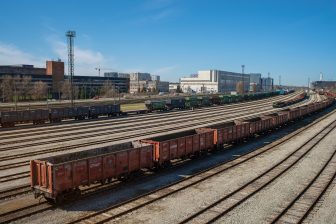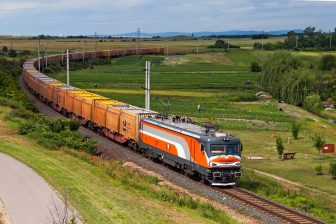
Maersk’s new mega-warehouse in Duisburg will not exclude rail
Photo: Maersk. Goldbeck.
A major shipping company, a hub and a new large warehousing facility promise to offer end-to-end logistics solutions on a trimodal basis. Maersk will start constructing a new 43,000-square metres warehouse in Duisburg, which, among others, will have direct access to rail freight services.
Do you want to read the full article?
Thank you for visiting RailFreight.com. Become a member of RailFreight Premium and get full access to all our premium content.
Are you already a member?
Having problems logging in? Call +31(0)10 280 1000 or send an email to customerdesk@promedia.nl.




